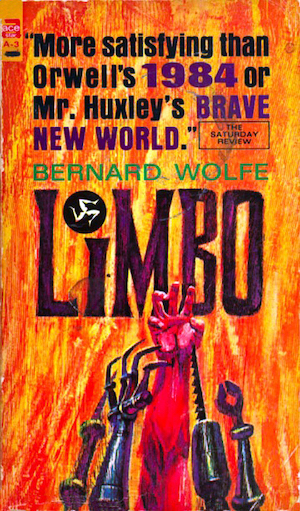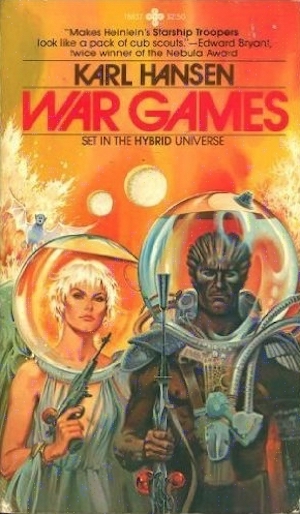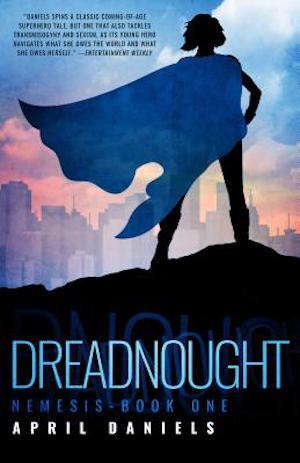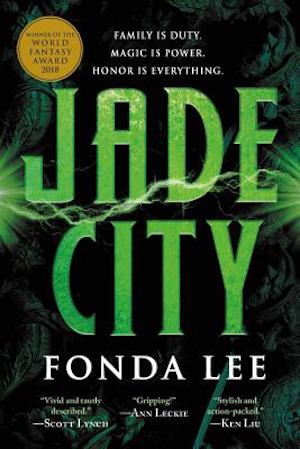An alternative to externally-mandated modification is, of course, self-directed modification. Who among us has not mused wistfully on how convenient it would be to replace our current eyes with functional sets, improve hearing, or simply acquire the ability to set people on fire just by thinking about it?
While modern technology does offer short-cuts for self-modification—glasses, hearing aids, and microwave lasers tuned to the resonant frequency of water—these often fall short in one aspect or another. SFF authors can imagine far more potent methods to facilitate self-directed modification—in fact, as these five works show, they have!
Limbo by Bernard Wolfe (1952)

Dr. Martine flees World War III just before a hydrogen bomb obliterates the medical facility at which he worked. As far as the world knows, Dr. Martine is dead. In fact, he lives on an obscure island, providing its pacifist natives with lobotomies.
In 1990, the outside world intrudes on Dr. Martine’s refuge. He learns of his unexpected legacy: Dr. Martine’s notebook, filled with bitterly satirical musings, was used by the literal-minded Helder as the basis for the new world order. Peace and radical body-modification rule! Alas, the two remaining world powers disagree how best to achieve their shared goal. It seems there’s no way to save peace without launching World War Four…
While the world of 1990 is adept at replacing limbs, it lacks any way to compensate for excessive literal-mindedness or an inability to recognize satire. For that matter, there is no pill people can take to make them understand that the means they have chosen are opposed to their ends. I feel the author was trying to make some sort of point here.
War Games by Karl Hansen (1981)

Advanced biotechnology can transform baseline humans into beings that can survive hostile environments from Mars to Titan, and even the vacuum of space! Artificial biochemistries abound. Spaceships unbounded by mass ratios ply the space lanes. Human civilization has the means to spread across the galaxy. But rule by an immortal 0.000000001 percent of humanity means that humans are confined to the strife-torn Solar System.
Marc Detrs chased fortune using a precognitive timestone—instead, he glimpsed a graphic image of his eventual death. Ever cunning, Marc volunteered to become a Hybrid supersoldier in the endless war. Hybrids look nothing like the corpse he saw, so as long as Marc serves, no matter how dangerous the battlefield, he cannot be killed. By the time Marc realizes that timestones are adept at steering their users towards the very futures they seek to avoid, it’s far too late.
This novel requires a couple of content warnings. First: despite the publication date, it’s super-1970s. Second: while the characters embrace a wide range of sexual activity, the one nobody seems to be familiar with is “consensual.” Sex, like almost everything in this setting, is a means by which dominance is established.
Vigilant by James Alan Gardner (1999)

The Vigil is a constitutionally entrenched watchdog organization. The Vigil has comprehensive powers to monitor and report on all government activities, no matter how secret. The Vigil’s members can be trusted to uphold the public good not merely because they are carefully selected and rigorously trained. All members of the Vigil embrace the Mushor, a cognitive enhancement that makes it impossible for them to ignore unpleasant or inconvenient facts.
Murder being nearly unknown in the League of Peoples, Vigil member Faye Smallwood’s work should involve petty corruption, incompetence, and the like. However, not only does Faye find herself investigating a murder, the killer is targeting the Vigil. Faye must catch a killer or become the next victim herself.
Some readers may notice a parallel between the Mushor and the drug featured in John Brunner’s The Stone That Never Came Down (if you’ve not heard of it, see footnote two). This is not a case of Did We ALL Write a Book About Space Elevators? Gardner cites Brunner’s novel as inspiration in Vigilante’s acknowledgements.
Dreadnought by April Daniels (2017)

In superhero universes, marvelous transformation is as easy as chanting Shazam!, Kimota!, or striking a mystically-changed cane against the ground. Danny’s transformation began when Danny encountered a mortally wounded superhero. The mantle of power was passed from the dying Dreadnought to Danny. In an instant, Danny was transformed into an idealized superhuman: invulnerable, super-strong, able to fly, and—a detail that would enrage Danny’s bigoted father—manifestly a young woman rather than the teenaged boy Danny’s father believed Danny to be.
With great power comes great complications. The late Dreadnought’s teammates are unsure what to make of the new Dreadnought. Danny discovers that transformation provides no immunity to social bullying. Not to mention the fact that the person who killed the old Dreadnought may well decide to eliminate Danny as well … and that person had no trouble killing the previous Dreadnought, who was considerably more experienced.
Granted, being imbued with the mantle of power is largely an accident, but one that could only happen because Danny did not abandon a dying superhero. As well, what individual Dreadnoughts make of their abilities is entirely up to each individual.
Jade City by Fonda Lee (2017)

In a world not unlike our own, obtaining superhuman strength, speed, durability and other marvelous abilities is as easy as strapping on a bit of jade. Neither nephrite nor jadeite, this wonderous mineral imbues the wearer with nigh-superhuman abilities. Many jade-wearers subsequently discover that their bodies and minds cannot survive enhancement … but hey, no risk no gain!
The island nation Kekon is the sole source of natural jade. Foreign powers covet Kekon’s resources. While jade-enhanced Green Bones have successfully prevented foreigners from conquering Kekon, the quarrelsome warriors have also forestalled effective unification. Visionary clan leader Ayt Mada has a plan to bring the island under her leadership…but unfortunately for Ayt, she isn’t the protagonist. Kaul siblings Lanshinwan, Hiloshudon, and Shaelinsan are, and they are utterly opposed to Ayt.
Some readers may find it odd that Kekon is both the only place with jade and the only nation with a significant fraction of its population about to survive long-term exposure to jade. The two could be connected: on an island where exposure to jade is common, natural selection may have eliminated the most vulnerable.
***
As previous forays into this subject make clear, many science fiction and fantasy authors find self-directed enhancement inspirational. Examples abound, far more than the canonical five. Many works that would qualify for inclusion were not mentioned. Have fun pointing out my oversights in comments below!
In the words of fanfiction author Musty181, four-time Hugo finalist, prolific book reviewer, and perennial Darwin Award nominee James Davis Nicoll “looks like a default mii with glasses.” His work has appeared in Interzone, Publishers Weekly and Romantic Times as well as on his own websites, James Nicoll Reviews (where he is assisted by editor Karen Lofstrom and web person Adrienne L. Travis) and the 2021, 2022, and 2023 Aurora Award finalist Young People Read Old SFF (where he is assisted by web person Adrienne L. Travis). His Patreon can be found here.










